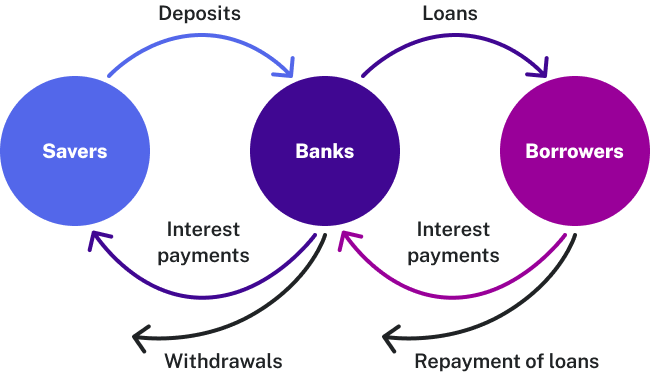The Role of Banks in the Economy
Banks make it far easier for a complex economy to carry out the extraordinary range of transactions that occur in goods, labor, and financial capital markets. Imagine for a moment what the economy would be like if all payments had to be made in cash. When shopping for a large purchase or going on vacation, you might need to carry hundreds or thousands of dollars with you. Even small businesses would need huge amounts of cash to pay workers and to purchase supplies. A bank allows people and businesses to store this money in either a checking account or savings account, for example, and then withdraw this money as needed through the use of a direct withdrawal, writing a check, or using a debit card.

Banks are a critical financial intermediary in this payment system which helps an economy exchange goods and services for money or other financial assets. Also, people with extra money that they’d like to save can store their money in a bank rather than look for an individual who is willing to borrow it from them and then repay them at a later date. Those who want to borrow money can go directly to a bank rather than trying to find someone to lend them cash. Thus, banks act as financial intermediaries, operating between parties such as savers and borrowers. All the funds deposited are mingled in one big pool, which is then loaned out. The figure below illustrates the position of banks as financial intermediaries, with deposits flowing into a bank and loans flowing out.